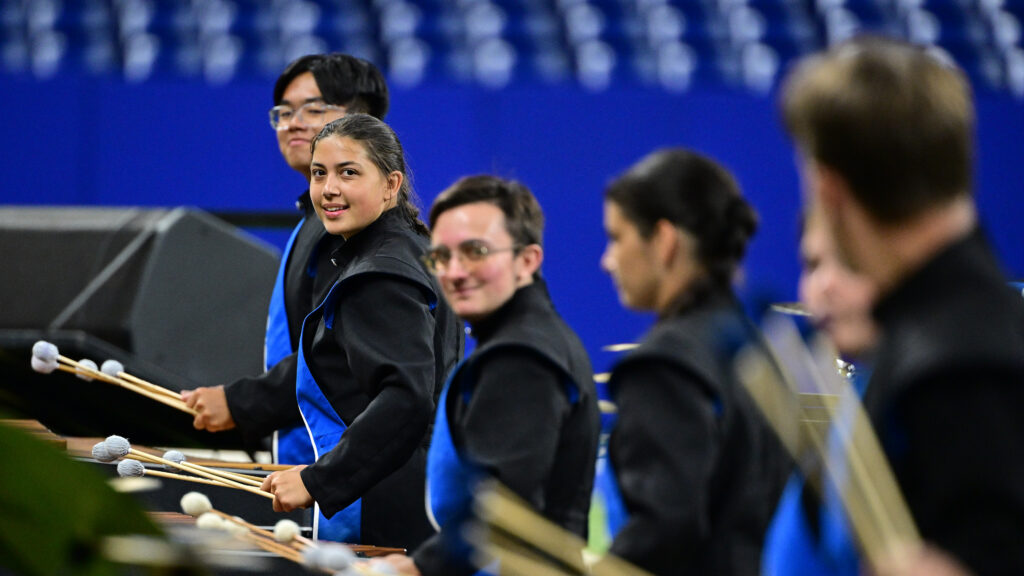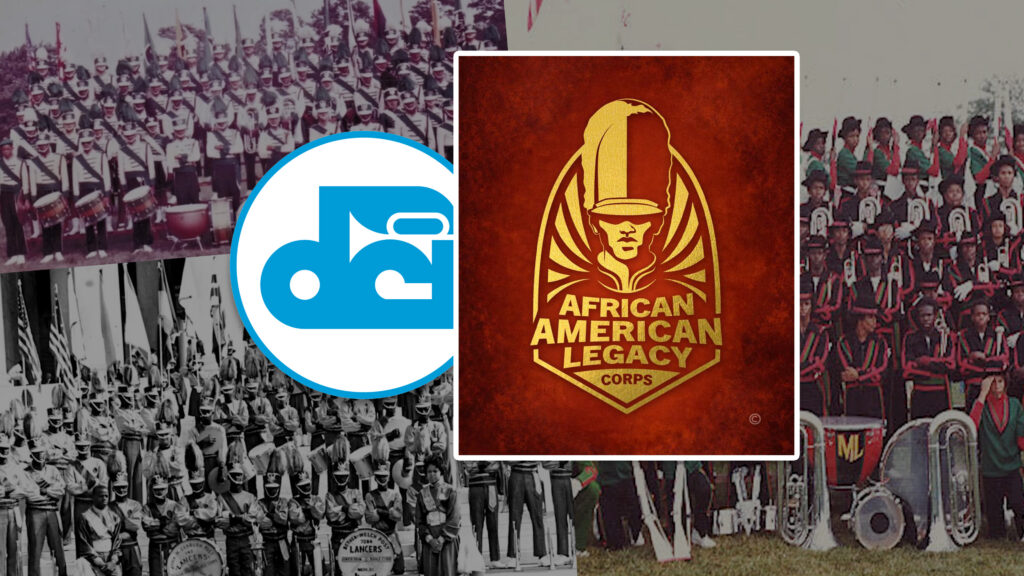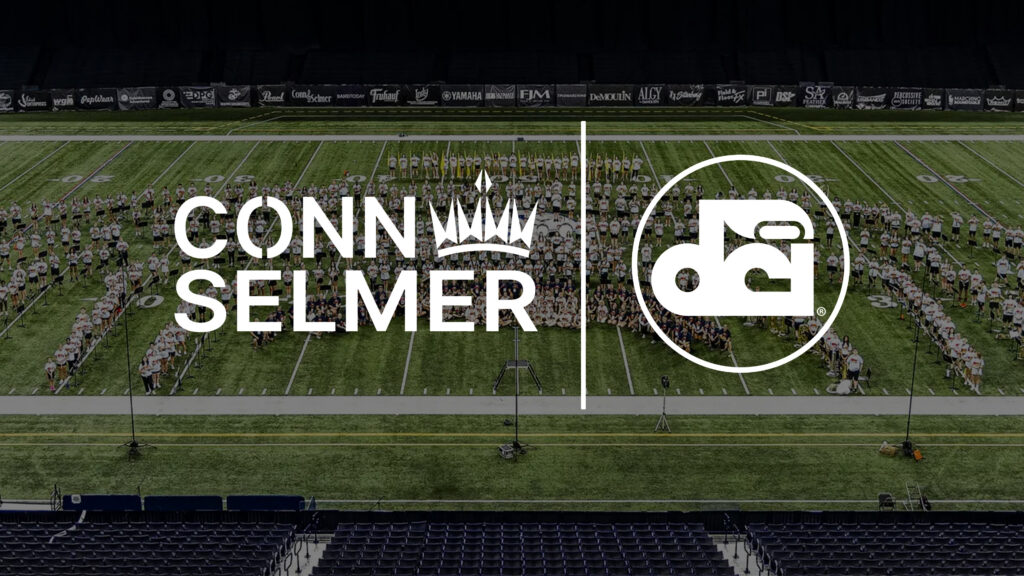Last week I talked about ways to approach practicing between camps. However, that’s only half the story; drum corps has a physical component as well, and it’s important to remember that your chops aren’t the only muscles that need work between camps!

The best way to prepare for tour and the physical demands of the summer is to start early and work out often. As with anything else, if you already have a routine and it works for you, stick with it! There is no magic bullet to get you in shape for tour. I cannot stress enough the importance of arriving at everydays physically prepared for the demands of drum corps. You will be engaging in intense physical activity at least five or six hours a day; those people who tend to end up dropping out of drum corps, or worse yet having to go home due to injuries, are those who do not prepare physically during the off-season. As an assistant tour director, I saw it happen time and again: New member comes in enthusiastic but underprepared. New member sprains ankle on third day due to tired muscles that make a mistake. New member is never able to fully recover due to overly tired, unprepared body. New member gets too far behind to be successful in the show; body stays injured; new member goes home within two weeks of the beginning of tour, having marched only occasionally because of difficulty of staying on the field during rehearsal, due to pain from injury. Unfortunately most drum corps hopefuls seem to think that everyday rehearsals are the period of time that the staff gets you into shape for tour, but the reality is that everydays are the most physically intense time of the entire season, and you cannot expect to go from couch potato to marching star in that time! Listen to what I, the vets, and your staff are all telling you: You must prepare physically before tour — ideally starting in the winter months — or you are virtually guaranteed to hurt yourself early and often. Drum corps utilizes most muscle groups at one time or another, but there are a few key ones: for guard and horn players, the upper body/shoulder areas; for drummers, the lower back; and for everyone, the abdominals and lower body, plus endurance (heart-lung) training. Exercises are fairly self-explanatory, and you’re probably already doing them at camps — things like push-ups, sit-ups, running, and the like. If your corps uses a specific set of exercises, it’s best to duplicate them as much as possible, since oftentimes these have been put together to meet the physical requirements of the show design. If you need specific suggestions in which exercises to do, talk to your visual staff, drum majors, and/or section leaders; they will be able to give you some guidance. Don’t forget to think about endurance training. Many of us don’t like running, but it’s the closest thing to marching that there is. If you like the exercise bike or the elliptical trainer, great, use them! But as the weather warms up, you are going to have to shift to running outside — there is no substitute for it, and you’ll do it every day on tour anyway, so you might as well get used to it ahead of time. As a longtime fitness addict, I can tell you that the cardiovascular work-out you get on a machine, even a treadmill, is never as intense as going out and pounding the pavement in the real world. Running on trails, grass, or sand is more difficult than hard surfaces and maximizes your workout. One other caveat: If you have a physical issue (for example, knee or ankle problems) that makes it hard for you to run two or three miles, chances are you need to think long and hard about your ability to make it through tour, and you should get with a doctor and/or physical therapist ahead of time to get fitted with the appropriate support equipment. Don’t think, “Oh, I can’t run because it makes my knees hurt, but I’ve never had problems marching before; I don’t need that big knee brace.” You’ve also never done drum corps before, and you’re the kind of person I’ve taken to the hospital each May for the past two years. I’m sorry if that seems harsh, but it’s true, and you need to be realistic about your physical situation if you want to be successful in this activity. For most of us, the biggest challenge isn’t in knowing which exercises to do, it’s in finding the time to do them! Schedule your exercise time, just like you do your practice time — and then stick to it. Finding a workout buddy helps, because then you know someone else is counting on you to show up when you’re supposed to. If you’re a college student, your campus rec center may offer classes in Pilates, weight training, gut-and-butt workouts, or other areas that you might find helpful. Join an intramural team or a sports club. Utilize your down time; it’s just fine to work out while you watch TV! Try doing crunches during commercial breaks, or do 50 calf-raises every time Homer Simpson says “Mmmm — forbidden donut.” If you find yourself getting fuzzy-headed in a late-night practice session, do a set of push-ups or take a jog around the outside of the building. Get up half an hour earlier every day and run one mile, do 50 push-ups, and do 100 crunches. I know you’re saying, “But Emily, I only sleep five hours a night as it is; how can I sleep half an hour less?!” And believe me, I feel your pain. The point is, finding time to exercise is easier than you think it is if you’ll follow the old Nike slogan and “Just do it!” The winter break offers a great time to get into an exercise schedule, because you have a good two or three weeks to get into a new habit that you can maintain once you start the new semester. In the end, all of us can make excuses for ourselves about busy schedules and no time. But if you make a commitment to integrating exercise into your daily life, you’ll find it quickly becomes just another part of the routine, and come May you won’t be one of those people sitting on the sideline with an ice pack because your back gave out after the first 10 days. Emily Tannert is a sophomore music education/percussion performance major at Louisiana State University in Baton Rouge, La., and holds a journalism degree from Northwestern University. Emily aged out of the Glassmen in 2003 and was assistant tour manager for the corps in 2004 and 2005. You can contact Emily at [email protected].





